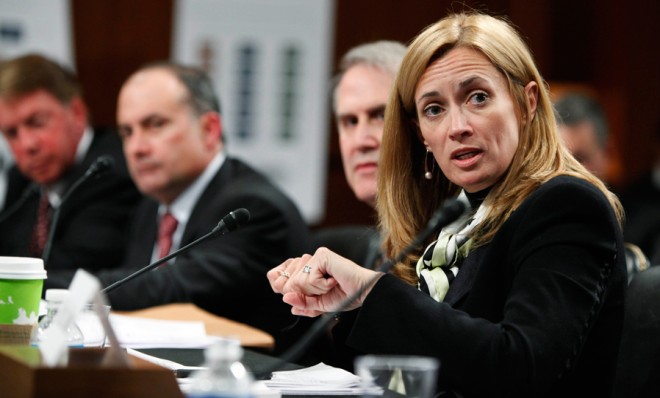How JPMorgan allegedly manipulated energy markets
The scheme reportedly cost taxpayers millions

A free daily email with the biggest news stories of the day – and the best features from TheWeek.com
You are now subscribed
Your newsletter sign-up was successful
A little-known regulatory agency might be on the verge of reeling in a whale of a fine.
The Federal Energy Regulatory Commission is reportedly in talks with JPMorgan Chase to settle allegations that the bank manipulated energy markets in California and Michigan in 2010 and 2011. The fine, originally thought to be $1 billion, is now expected to be around $500 million. Barclays, another bank facing similar charges to the tune of $487.9 million, is reportedly gearing up to fight the agency in court.
Here, a guide to the latest scandal on Wall Street:
The Week
Escape your echo chamber. Get the facts behind the news, plus analysis from multiple perspectives.

Sign up for The Week's Free Newsletters
From our morning news briefing to a weekly Good News Newsletter, get the best of The Week delivered directly to your inbox.
From our morning news briefing to a weekly Good News Newsletter, get the best of The Week delivered directly to your inbox.
What's FERC?
FERC oversees pretty much everything to do with pricing power — wholesale electric rates, natural gas, oil pipeline rates, etc. It's been around in one form or another since 1930, but has only recently started throwing its weight around.
After 2001's Enron scandal, which exposed the former energy company's elaborate accounting scam, Congress bulked up the agency's authority, increasing the maximum fine it could extract from $10,000 per violation to $1 million per violation per day. Since 2007, FERC has assessed $291 million in penalties.
The fines for both JPMorgan and Barclays would dwarf all of that.
A free daily email with the biggest news stories of the day – and the best features from TheWeek.com
What is FERC accusing JPMorgan of?
In March, FERC alerted JPMorgan that it would recommend penalties against its power-trading unit. The notice, according to The New York Times, said JPMorgan devised "manipulative schemes" that transformed "money-losing power plants into powerful profit centers."
What kind of "manipulative schemes"?
The alleged foul play stems from the bank's 2008 takeover of Bear Stearns, which was then at death's door due to its risky investments in the mortgage market. Turns out that Bear Stearns also had interests in out-of-date power plants, which JPMorgan obtained as part of the deal. Feeling "pressure to generate large profits," according to FERC, JPMorgan's traders devised a solution that went something like this:
JPMorgan allegedly took advantage of a "make-whole" provision in energy markets to overcharge states for electricity, costs that were eventually absorbed by the taxpayer. First, traders would offer a low bid to deliver a minimum amount of electricity from a plant the next day, ensuring that the plant would be turned on. On the day of, traders would offer a much higher bid for the plant's electricity, virtually guaranteeing that no one would buy. The plant would thus operate well below capacity, and lose money.
It sounds like throwing money out the window. But no: The make-whole provision requires plants to be repaid if their profits don't make up for the costs of getting the plant up and running. JPMorgan allegedly took advantage of that fact to squeeze money out of the states and make a profit.
In the order against Barclays, FERC said the evidence "demonstrates that the intentional amassing of the positions and trading to influence price were not based on normal supply and demand fundamentals, but rather on the intent to effect a scheme to manipulate the physical markets in order to benefit the financial swaps," says Bloomberg Businessweek.
Have any individuals been implicated?
Yes. On top of the allegations, investigators are accusing JPMorgan of systematically covering up documents that revealed the alleged trading strategy, including one that showed Blythe Masters, the global head of commodities for JPMorgan, demanding a "rewrite" of a document that questioned whether the bank was acting legally. FERC is also claiming that Masters gave "false and misleading statements" about trading practices under oath.
Though JPMorgan is denying that she acted inappropriately, regulators will probably file a separate charge against her.
Carmel Lobello is the business editor at TheWeek.com. Previously, she was an editor at DeathandTaxesMag.com.